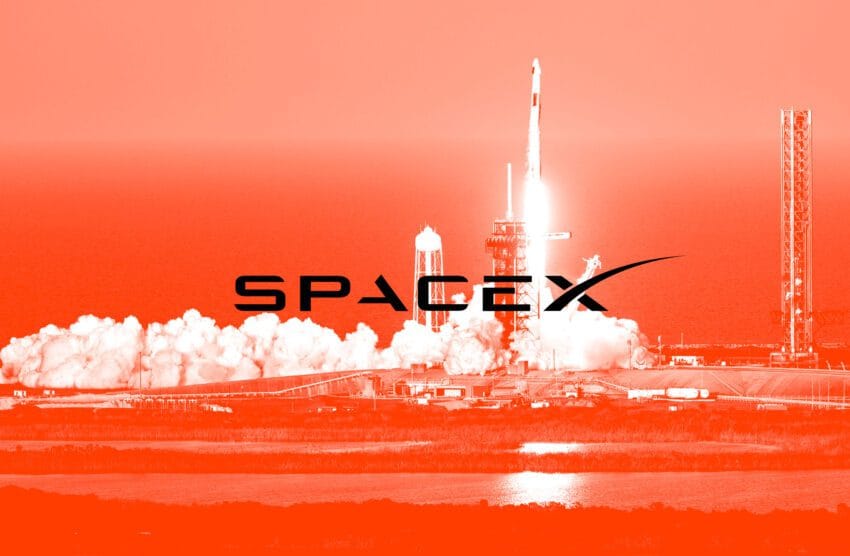
echostar offloads satellite spectrum to spacex for EchoStar has reached a significant agreement to sell its wireless spectrum licenses to SpaceX for approximately $17 billion, a move that is poised to reshape the landscape of satellite communications.
echostar offloads satellite spectrum to spacex for
Details of the Agreement
On Monday, both EchoStar and SpaceX announced the deal, which is expected to enhance SpaceX’s Starlink service by integrating cellular capabilities. The spectrum acquired from EchoStar will enable SpaceX to develop what it describes as the “next generation” of its cellular satellite service. This development is particularly noteworthy for customers of Boost Mobile, a brand owned by EchoStar, who will gain access to this advanced service as part of the agreement.
Context of the Sale
This transaction comes on the heels of another major deal in which EchoStar announced the sale of 5G spectrum to AT&T for $23 billion. Both agreements are anticipated to address ongoing regulatory scrutiny from the Federal Communications Commission (FCC). The FCC had initiated an investigation into EchoStar’s 5G expansion plans after receiving a complaint from SpaceX. The complaint alleged that EchoStar was not effectively utilizing its spectrum for satellite connectivity, raising concerns about the company’s commitment to its original objectives.
Regulatory Implications
The FCC’s investigation, led by Chair Brendan Carr, was launched in May 2023. The inquiry focused on EchoStar’s use of its AWS-4 (2GHz) spectrum band, which the company had initially intended to leverage for direct-to-device satellite cell service. However, the sale of this spectrum to SpaceX effectively halts EchoStar’s plans for its own direct-to-device service, a pivot that has significant implications for the competitive landscape of satellite communications.
SpaceX’s Strategic Vision
In a press release, EchoStar’s CEO, Hamid Akhavan, emphasized that the deal would facilitate SpaceX in realizing its vision for direct-to-cell service in a manner that is more innovative, economical, and expedient for consumers globally. This statement underscores SpaceX’s ambition to expand its offerings beyond traditional satellite internet services, venturing into the cellular market.
SpaceX’s Starlink service has already garnered attention for its ability to provide high-speed internet access in remote and underserved areas. By integrating cellular capabilities, SpaceX aims to further enhance its service offerings, potentially allowing users to connect their mobile devices directly to satellites, bypassing traditional cellular infrastructure.
Market Reactions
The announcement has elicited varied reactions from stakeholders across the telecommunications and satellite industries. Analysts suggest that this deal could significantly alter competitive dynamics, particularly in the realm of mobile connectivity. As traditional telecom companies grapple with the challenges posed by emerging technologies, the integration of satellite capabilities into cellular services could provide a competitive edge.
Impact on Boost Mobile Customers
For Boost Mobile customers, the implications of this deal are particularly noteworthy. As part of the agreement, these customers will gain access to SpaceX’s enhanced cellular satellite service. This could mean improved connectivity in areas where traditional cellular networks are weak or nonexistent. The integration of satellite technology into mobile services could also lead to lower costs and improved service reliability, as users would no longer be solely dependent on terrestrial networks.
Future of Satellite Communications
The sale of spectrum licenses from EchoStar to SpaceX marks a pivotal moment in the evolution of satellite communications. As companies like SpaceX continue to innovate and expand their service offerings, the potential for satellite technology to disrupt traditional telecommunications models becomes increasingly apparent. The ability to provide direct-to-device connectivity could redefine how consumers access mobile services, particularly in rural and underserved regions.
Challenges Ahead
Despite the promising outlook, challenges remain. The integration of satellite technology into cellular services is not without its hurdles. Technical challenges related to latency, bandwidth, and regulatory compliance will need to be addressed as SpaceX moves forward with its plans. Additionally, the competitive landscape will continue to evolve, with other companies likely to respond to SpaceX’s advancements by enhancing their own offerings.
Stakeholder Perspectives
Industry experts have weighed in on the potential ramifications of this deal. Some view it as a necessary step for EchoStar to refocus its efforts and resources, while others express concern about the implications for competition in the telecommunications space. The sale could be seen as a strategic retreat for EchoStar, which has faced challenges in effectively utilizing its spectrum assets.
On the other hand, SpaceX’s acquisition of the spectrum is viewed as a bold move that aligns with its long-term vision of providing comprehensive connectivity solutions. By leveraging its existing satellite infrastructure, SpaceX is well-positioned to capitalize on the growing demand for mobile connectivity, particularly in areas where traditional networks fall short.
Conclusion
The $17 billion sale of wireless spectrum licenses from EchoStar to SpaceX represents a significant milestone in the telecommunications industry. As SpaceX prepares to integrate this spectrum into its Starlink service, the potential for enhanced connectivity and service offerings becomes increasingly tangible. The implications for Boost Mobile customers, as well as the broader telecommunications landscape, are profound. As the industry continues to evolve, the successful implementation of satellite technology in mobile services could redefine how consumers access connectivity in the years to come.
Source: Original report
Was this helpful?
Last Modified: September 8, 2025 at 8:38 pm
2 views















